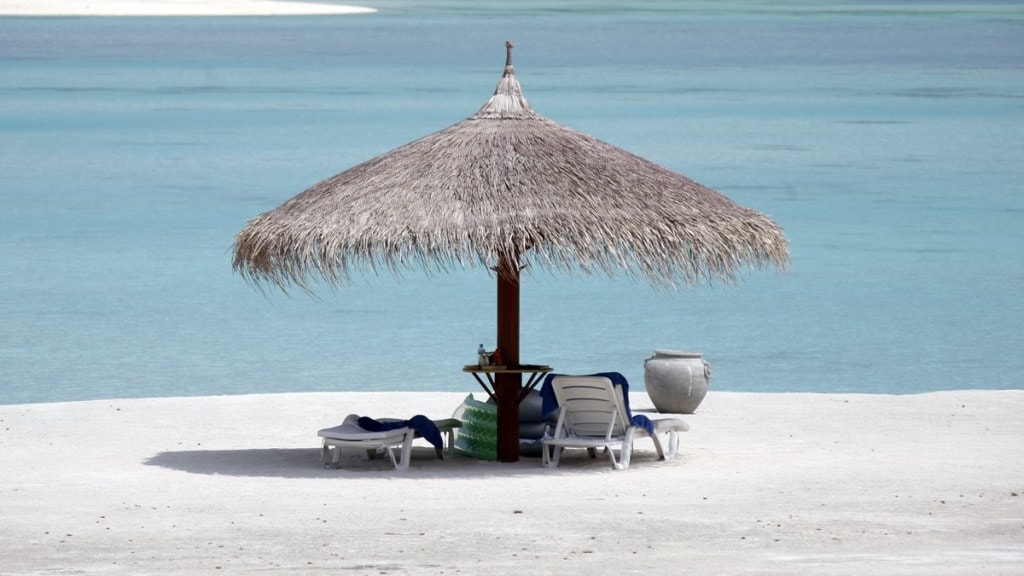Amid the uproar over Indians boycotting Maldives as a tourist destination, which has sparked off a chain of cancellations by individuals and agencies alike, the tourism sector is anticipating distress in the coming months.
Said Sonu Shivdasani, founder & CEO of Soneva, which includes luxury resorts Fushi, Jani and Aqua in the Maldives and Thailand, “We are still receiving Indian guests, but there were certainly cancellations when the posts first came out. We had a $30,000 booking from a travel agent that was cancelled.
The callous remarks have had an impact on Indian arrivals. There are 180 hotels in the Maldives, and with some India is the main market. I suspect that in the coming months, the Maldives will lose around $25-50 million or more on account of Indian tourists. This will, of course, impact hoteliers who put a lot of effort into creating unique experiences for guests, and, more importantly, the employees of these hotels.”
He added, “As per my estimates, if this cancellation continues, the service charge loss to employees in the Maldives hotel industry, which are largely Maldivian, will be somewhere between $2.5-5.5 million.”
Soneva Fushi was one of the first luxury hotels to open in the Maldives in 1995, and the Soneva brand receives more than 50% of its revenue from returning guests, which includes Indians. “This is high and arguably a record for a destination where the majority of these guests are travelling more than 12 hours to come to us.”
As per data released by the Maldives tourism ministry, India has remained the largest tourist market for the country in 2023. The highest number of visitors to the Maldives were from India, with 209,198 arrivals, followed by Russia in second place with 209,146 arrivals, and China in third place with 187,118 arrivals. In 2022, India remained the top Maldives tourism market, with 240,000 arrivals. Russia followed closely in second place with 198,000 tourists, and Britain ranked third with over 177,000 arrivals.
The Maldives relies on tourism as the largest sector of its economy, providing more than 28% of GDP and 60% of foreign exchange.
“We are yet to see an impact on bookings,” said Rajiv Mehra, President, IATO (Indian Association of Tour Operators), the national body of the tourism industry, adding how no fresh queries for bookings post the controversy have come up, but there are not many cancellations as people have invested money on bookings.
In an island nation like Maldives, where Indians are driving the economy and is the number one source market, Jyoti Mayal, president, Travel Agents’ Association of India (TAAI), said, “We are noticing many travellers and members asking to cancel their Maldives bookings as safety is a concern for many tourists.”
Lakshadweep, on the other hand, has generated a lot of interest, and Mehra feels, “It is far from challenging Maldives as a destination, which is a well established tourism destination.
At present, Lakshadweep despite its pristine beauty is really not on the tourism map for multiple reasons like quality hotels, police clearance issues and only one direct flight from Cochin International Airport to Lakshadweep’s Agatti Island with Air India subsidiary Alliance Air operating four days a week. Other infrastructure like restaurants, transport, sea sports are not developed. For tourism to prosper, we need these vital things in place.”
The Federation of Hotel & Restaurant Associations of India (FHRAI), India’s apex body and voice of the hospitality industry, has also extended its appreciation for Lakshadweep. “Lakshadweep will catalyse substantial investments in infrastructure, connectivity and hospitality services, making the archipelago an accessible and coveted destination for global tourists,” said Pradeep Shetty, president, FHRAI, & president, The Hotel And Restaurant Association (Western India) – HRAWI.
